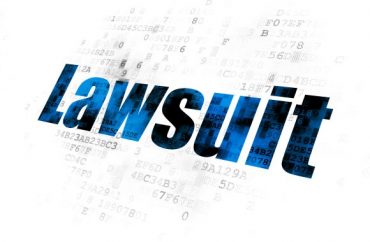
Public sector employees have First Amendment right not to subsidize union, lawsuit alleges
Two UC San Diego workers have filed a class action lawsuit against their union and the University of California, claiming union dues are being stripped from their paychecks against their will and in violation of their Constitutional rights.
Service Desk Analysts Pablo Labarrere and Sam Doroudi allege that they were never informed of their right to refuse to allow union dues to be taken from their paychecks when they were hired, and that subsequent requests to stop the withdrawals were refused by union bosses.
The federal class action lawsuit was filed in mid-March against the University Professional and Technical Employees Union and various UC leaders. None of the defendants responded to multiple requests for comment from The College Fix.
The plaintiffs are represented pro bono by the National Right to Work Legal Defense Foundation, which is citing the 2018 Supreme Court Janus ruling that struck a blow against public sector labor unions by ruling non-union members cannot be compelled to pay union dues.
“The Supreme Court made it absolutely clear in Janus that union officials violate public workers’ First Amendment rights when they seize union dues without their consent,” National Right to Work Foundation President Mark Mix stated in a news release.
“Yet over a year and a half after the decision, California union bosses – with the assistance of state officials – continue to subject the state’s public servants to schemes that violate these rights, all to fill union coffers with more illegal dues.”
According to the lawsuit, at their employment orientation, Labarrere, Doroudi and others who attended “were made to believe that it was a condition of employment to either join the union as full members or pay forced fees as nonmembers.”
But the union dues authorization cards the new hires were told to sign failed to inform them of their right to decline both options, and that by signing the cards, they waived those rights, the suit claims.
Under the union’s policy, employees only have 30 days after they’ve signed “dues deduction authorization cards” to revoke them. After this 30-day “escape period” has passed, employees cannot prevent union officials from collecting the forced fees.
Once Labarrere and Doroudi independently learned of their First Amendment rights and sent revocation letters to UPTE officials demanding the due deductions be discontinued three months later, UPTE officials rejected their requests and continued to seize dues from their wages, the lawsuit alleges.
“The lawsuit contends that UPTE bosses are violating Labarrere’s and Doroudi’s First Amendment Janus rights by continuing to take dues from their paychecks without ever having received their ‘affirmative authorization and knowing waiver’ of those rights. It also argues that the 30-day ‘escape period’ illegally restricts Labarrere and Doroudi in the exercise of their Janus rights,” according to the NRTW press release.
It adds that the class-action ultimately “seeks to stop UPTE bosses and the University of California system from enforcing the scheme against any other workers, and require UPTE officials to return all dues and fees to any member of the workplace that had their First Amendment rights violated under the policy.”
Jacob Comello, a spokesman for the National Right to Work Legal Defense Foundation, said that the District Court for the Southern District of California has temporarily suspended in-person filings and personal appearances for civil cases amid the coronavirus crisis, but because a hearing date has not yet been issued for the case it doesn’t affect it.
MORE: Janus ruling expected to weaken, not destroy, faculty labor unions
IMAGE: Shutterstock





Please join the conversation about our stories on Facebook, Twitter, Instagram, Reddit, MeWe, Rumble, Gab, Minds and Gettr.